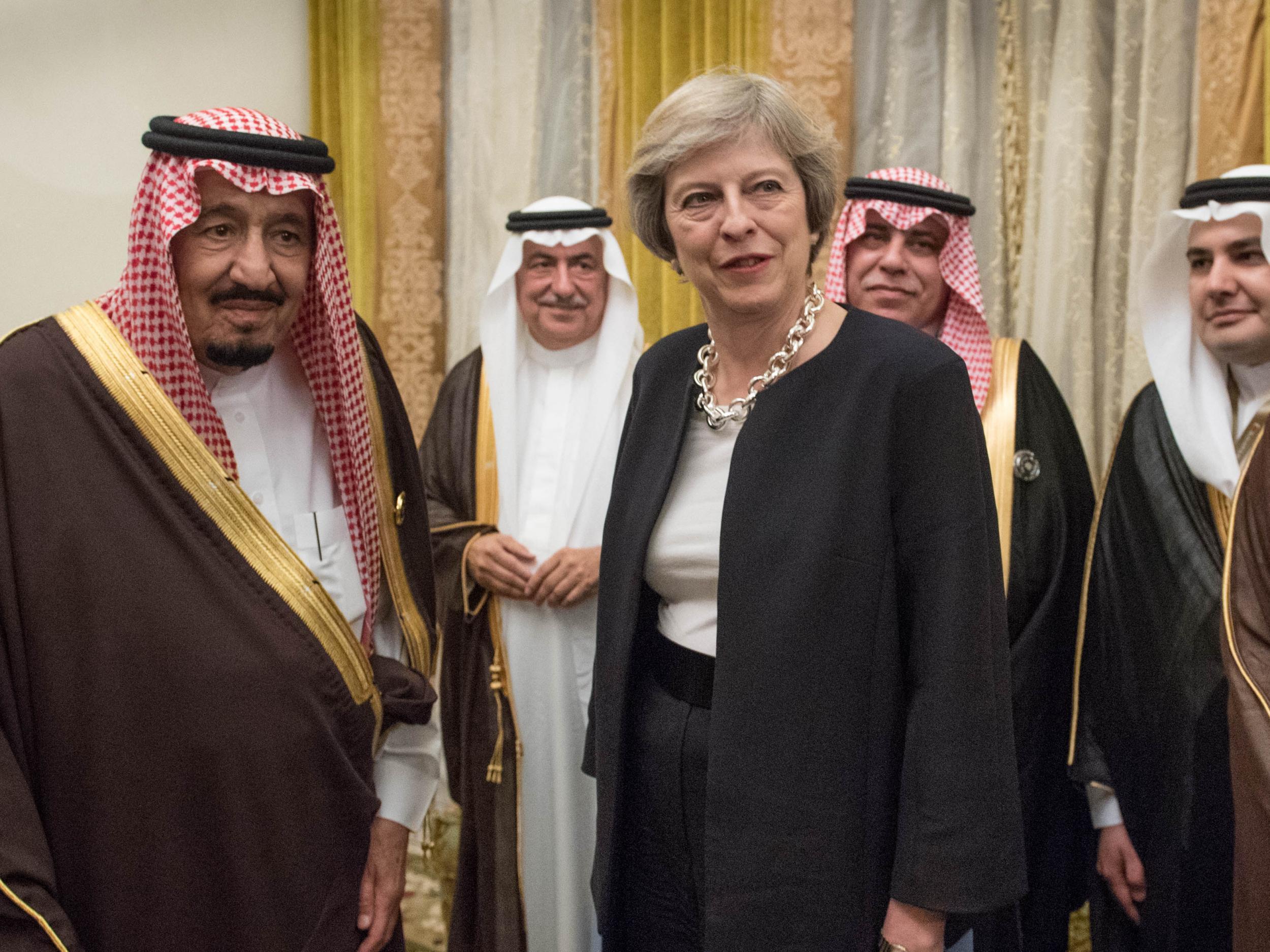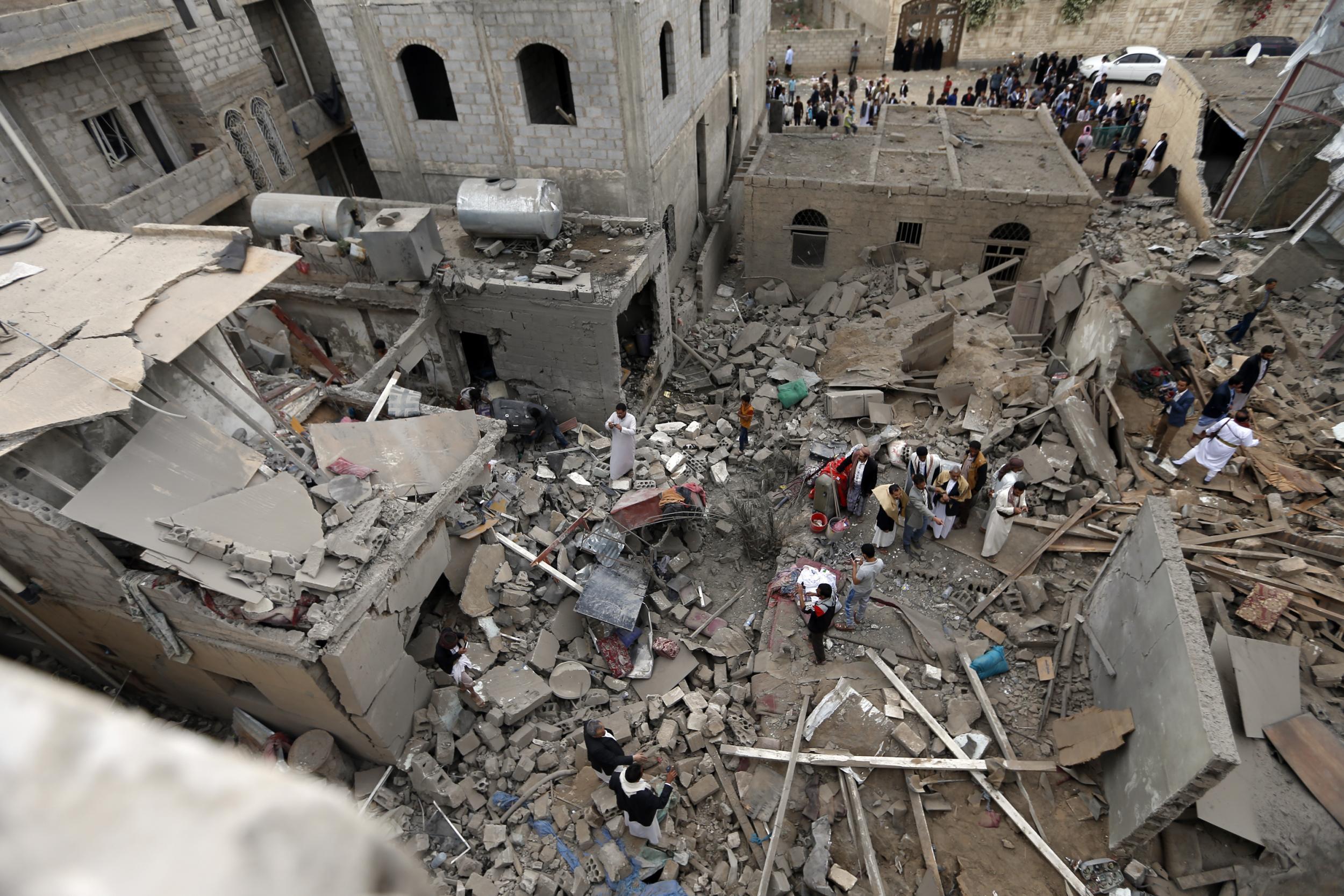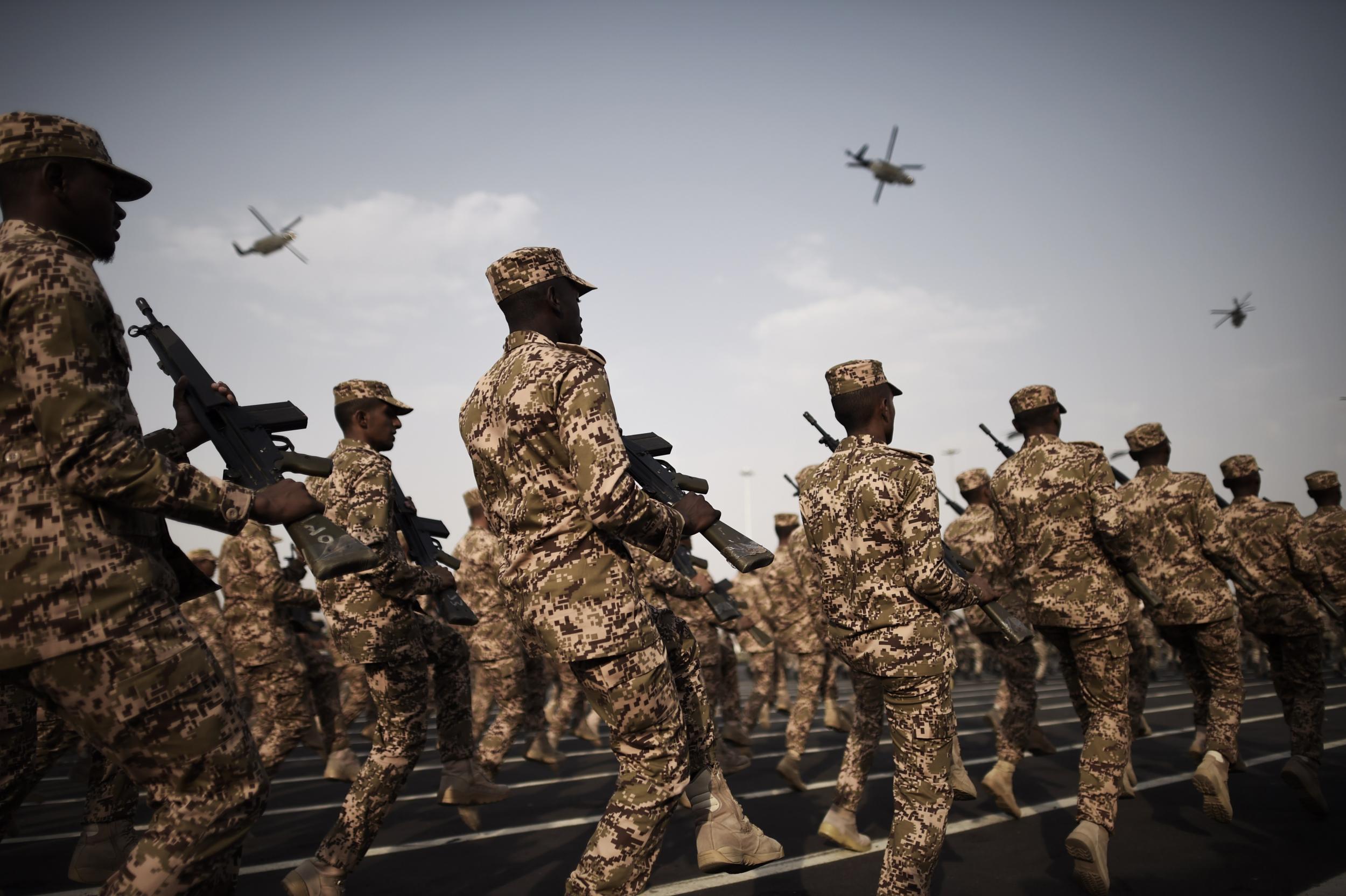Government not breaking law by selling arms to Saudi Arabia, High Court rules
Evidence used to dismiss legal challenge cannot be made public for 'national security reasons'

Your support helps us to tell the story
From reproductive rights to climate change to Big Tech, The Independent is on the ground when the story is developing. Whether it's investigating the financials of Elon Musk's pro-Trump PAC or producing our latest documentary, 'The A Word', which shines a light on the American women fighting for reproductive rights, we know how important it is to parse out the facts from the messaging.
At such a critical moment in US history, we need reporters on the ground. Your donation allows us to keep sending journalists to speak to both sides of the story.
The Independent is trusted by Americans across the entire political spectrum. And unlike many other quality news outlets, we choose not to lock Americans out of our reporting and analysis with paywalls. We believe quality journalism should be available to everyone, paid for by those who can afford it.
Your support makes all the difference.The Government is not breaking the law by continuing to sign off the sale of arms to Saudi Arabia, the High Court has ruled.
Activists from Campaign Against the Arms Trade (CAAT) had brought a legal challenge against the department in charge of arms control after British arms continued to flow to the autocracy despite it conducting a bloody military campaign in Yemen.
Saudi Arabia has been accused by the UN and other observers of killing large numbers of civilians, including through the reported bombing of hospitals, schools, and weddings, in its neighbouring country, where it is intervening against Shia Houthi rebels.
But the court ruled: “The open and closed evidence demonstrates that the Secretary of State was rationally entitled to conclude … [that] the Coalition were not deliberately targeting civilians, … Saudi processes and procedures have been put in place to secure respect for the principles of International Humanitarian Law … [and that] the Coalition was investigating incidents of controversy, including those involving civilian casualties.”
Lord Justice Burnett told the Court that it had not been established that there was “a clear risk that the items might be used in the commission of a serious violation of international humanitarian law”.
Amnesty International said the ruling was a “deadly blow” to Yemeni civilians, while Oxfam said there was a “clear moral case to suspend sales”.
The court heard both closed and open evidence over a period of three days earlier in the year. The judgment issued by the Court on Monday suggests that evidence given by the Government in closed court – and thus not made public – was crucial to the final decision. The Court said the evidence “cannot be referred to in open court” for “national security reasons”.
This secret evidence presented by the Government is said by the court to have included Saudi Arabia’s “fast-jet operational reporting data”, “high-resolution MoD-sourced imagery” and “UK defence intelligence reports and battle damage assessments”. The judgment summary said the MoD and FCO’s analysis “has all the hallmarks of a rigorous and robust, multi-layered process of analysis” and that the evidence presented by the campaigners was “only part of the picture”.
The organisation that brought the legal challenge said they would appeal the decision. Andrew Smith of CAAT said: “This is a very disappointing verdict, and we are pursuing an appeal. If this verdict is upheld then it will be seen as a green light for Government to continue arming and supporting brutal dictatorships and human rights abusers like Saudi Arabia that have shown a blatant disregard for international humanitarian law.
“Every day we are hearing new and horrifying stories about the humanitarian crisis that has been inflicted on the people of Yemen. Thousands have been killed while vital and lifesaving infrastructure has been destroyed.
“This case has seen an increased scrutiny of the Government’s toxic relationship with Saudi Arabia. It is a relationship that more than ever needs to be examined and exposed. For decades the UK has been complicit in the oppression of Saudi people, and now it is complicit in the destruction of Yemen.”
Since the bombing of Yemen began in March 2015, the UK has licensed £3.3bn worth of arms to the Saudi regime, including £1.1bn worth of ML4 licences, which relate to bombs, missiles, and other explosives.

Nabil Alsharafi, a managing partner at the NGO Safer Yemen, which is based in the country’s capital Sana’a, said the “current UK Government’s policy will only fuel the conflict”.
“It will inspire and encourage those dropping bombs on civilians to continue their human rights violations,” he said.
“People here are not blind to the situation. They know the UK’s stance on arms sales and their support for the Saudi-led coalition which is killing Yemenis every day.
“This is one of the worst humanitarian crises since the Second World War and more weapons coming into such a troubled region does not bode well.

“Just five minutes ago when we were reading the news about the High Court decision we also saw the jet fighters circling low around the city again. This is what we are dealing with and we are afraid it will continue now for a long time.”
Documents revealed during the course of the judicial review showed that the top civil servant in charge of the Export Control Organisation had recommended a halt to sales, but that ministers had not taken up this advice.
Theresa May last week said she “looked forward to deepening our close bilateral ties” with Saudi Arabia, while Michael Fallon said earlier this year that he wants British companies to sell more weapons to the country.
Rosa Curling of law firm Leigh Day, which represented CAAT during the case, said that “all the evidence we have seen from Yemen” suggested the risk of humanitarian law breaches “is very real”.
Green MP Caroline Lucas said the judgment “doesn’t give any moral justification for [the Government’s] utterly unethical actions when it comes to arms sales” and that a change in the law was “desperately” needed.
“While the strict legal verdict is that arms sales can continue, the only morally justifiable way forward would be an immediate arms embargo to Saudi Arabia,” she said.
A Government spokesperson said: “We welcome this judgment, which underscores the fact that the UK operates one of the most robust export control regimes in the world.
“We will continue to keep our defence exports under careful review to ensure they meet the rigorous standards of the Consolidated EU and National Arms Export Licensing Criteria.”
Join our commenting forum
Join thought-provoking conversations, follow other Independent readers and see their replies
Comments